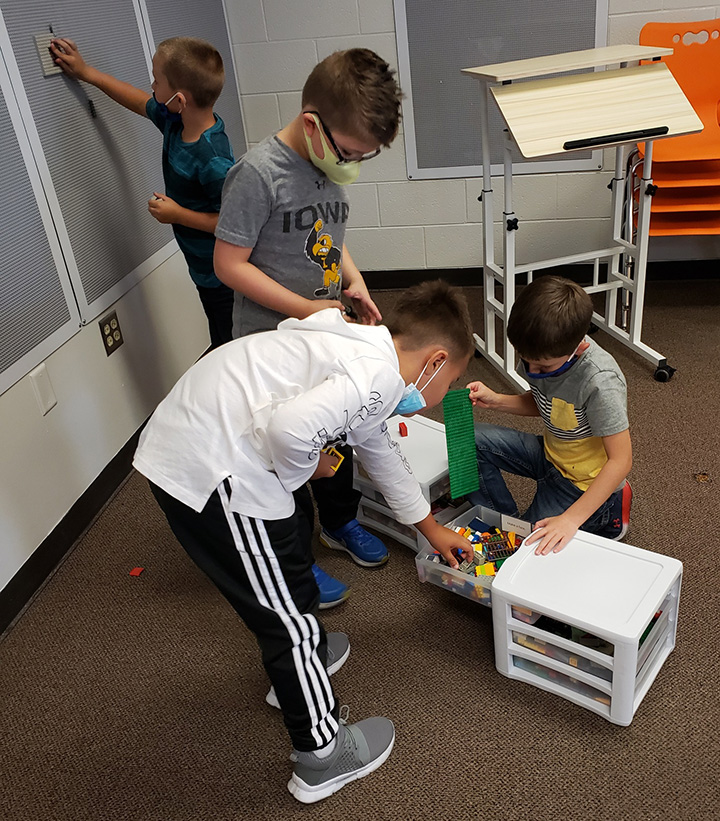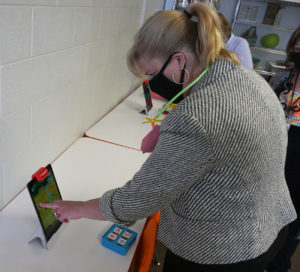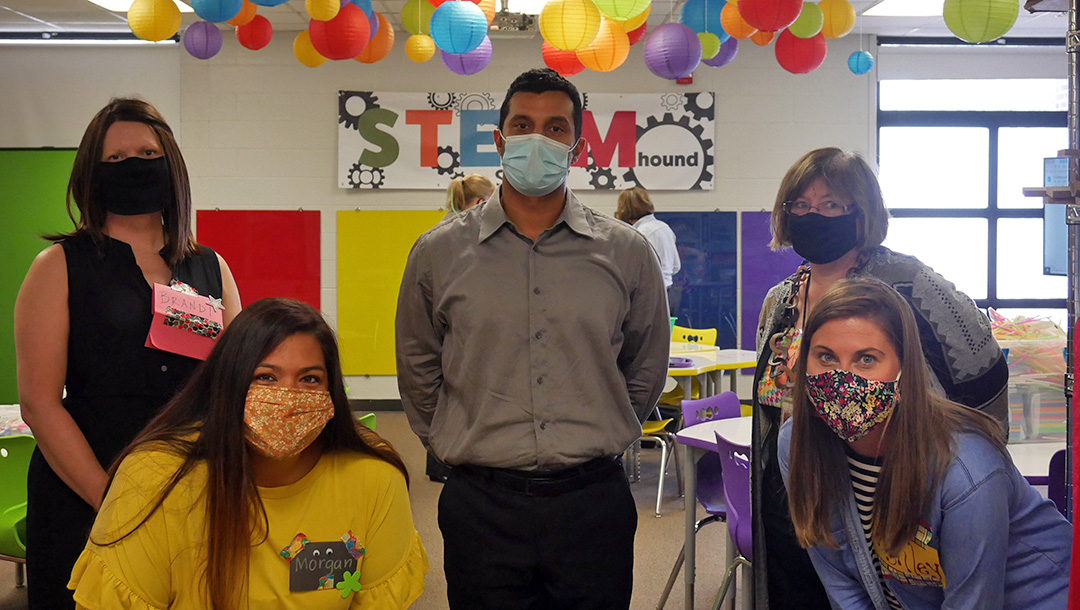 Richardson Elementary received the Computer Science is Elementary grant for the 2019-2020 school year.
Richardson Elementary received the Computer Science is Elementary grant for the 2019-2020 school year.
Their vision was scaffolded for success: Spend the first year planning, training coaches, and a leadership team. Then continue to expand by providing professional development for teachers to implement computer science into their classrooms. However, they didn’t stop at basic computer science implementation. Instead they sought opportunities to encourage their students and staff to be innovative and creative.
NewBoCo had the privilege of working with Richardson Elementary in multiple capacities. Instructional coaches and teachers participated in professional development that allowed them to learn and plan for how they could effectively integrate computer science into their kindergarten-third grade classrooms. Additionally, their computer science leadership team participated in Innovation Dojo, facilitated by Jennifer Murphy of NewBoCo, to explore innovation tools and methods that they could implement to increase the innovation and resiliency for staff and students in school.
The innovative mindset has allowed staff to shift their thinking about how they deliver instruction this year.
“This cultural norm fits perfectly under the umbrella of innovation as a professional lifestyle,” said principal Adrian McKay. “With a willingness to present new ideas, methods, strategies, designs, plans, and more to solve problems we are faced with, we are better able to ‘pivot’ and ‘adjust’ as we work to move through our learning models in Trimester 1.”
Teachers have been able to provide manageable, engaging content for students to complete their work as well as support for parents to understand the expectations. Like many Iowa schools, the content they create needs to be flexible to reach their in-person and online learners.
 Richardson Elementary started their computer science journey in an effort to ensure that their students did not fall behind. Sixty-one percent of the students at Richardson Elementary are Free-Reduced Lunch eligible, and the school wanted to ensure that they had equitable access to computer science education.
Richardson Elementary started their computer science journey in an effort to ensure that their students did not fall behind. Sixty-one percent of the students at Richardson Elementary are Free-Reduced Lunch eligible, and the school wanted to ensure that they had equitable access to computer science education.
Before they started, many teachers did not have knowledge about how computer science played a role in the elementary classroom, or they had games students could explore during extensions without teacher support.
“Our introductions to computer science began with a focus on coding, but we have expanded our thinking around computer science to reach far beyond just coding,” said McKay. “Every student at Richardson Elementary is exposed to computer science in the form of elements of programming that support pre-readers including sequence, concept of code, cause and effect, counting, planning, left-to-right reading, and problem solving.”
Throughout their computer science journey, the staff and students have shared nerves and excitement about computer science learning.
“Computer science is enticing to the students,” said librarian Michelle Bentler. “It is the chance for them to work on something and learn to persevere as we explain [that] failure is an option but also a chance to learn. Computer science allows for creativity and teamwork, and students know that they can let loose and have fun.”
Richardson Elementary’s dedication to encourage students to problem solve will help them adapt to the challenges this year and beyond.

